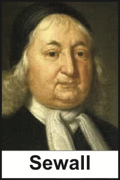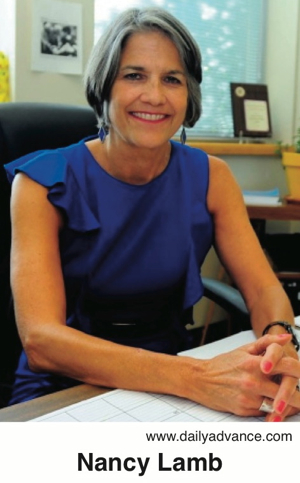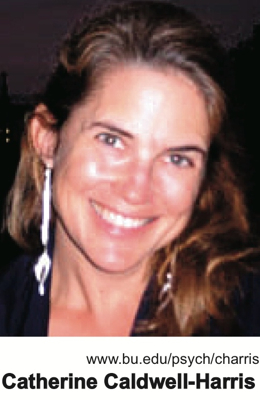Rascals case in brief
In the beginning, in 1989, more than 90 children at the Little Rascals Day Care Center in Edenton, North Carolina, accused a total of 20 adults with 429 instances of sexual abuse over a three-year period. It may have all begun with one parent’s complaint about punishment given her child.
Among the alleged perpetrators: the sheriff and mayor. But prosecutors would charge only Robin Byrum, Darlene Harris, Elizabeth “Betsy” Kelly, Robert “Bob” Kelly, Willard Scott Privott, Shelley Stone and Dawn Wilson – the Edenton 7.
Along with sodomy and beatings, allegations included a baby killed with a handgun, a child being hung upside down from a tree and being set on fire and countless other fantastic incidents involving spaceships, hot air balloons, pirate ships and trained sharks.
By the time prosecutors dropped the last charges in 1997, Little Rascals had become North Carolina’s longest and most costly criminal trial. Prosecutors kept defendants jailed in hopes at least one would turn against their supposed co-conspirators. Remarkably, none did. Another shameful record: Five defendants had to wait longer to face their accusers in court than anyone else in North Carolina history.
Between 1991 and 1997, Ofra Bikel produced three extraordinary episodes on the Little Rascals case for the PBS series “Frontline.” Although “Innocence Lost” did not deter prosecutors, it exposed their tactics and fostered nationwide skepticism and dismay.
With each passing year, the absurdity of the Little Rascals charges has become more obvious. But no admission of error has ever come from prosecutors, police, interviewers or parents. This site is devoted to the issues raised by this case.
On Facebook
Click for earlier Facebook posts archived on this site
Click to go to
Today’s random selection from the Little Rascals Day Care archives….
Click for earlier Facebook posts archived on this site
Click to go to
Today’s random selection from the Little Rascals Day Care archives….
Hit-and-run prosecutors, therapists don’t look back
 Feb. 24, 2012
Feb. 24, 2012
“Samuel Sewall was one of nine judges appointed to hear the Salem witch trials in 1692.
“Five years later he stood up in church in front of the congregation while the minister read out his apology.
“None of his colleagues on the bench followed suit.”
– From “Judge Sewall’s Apology: The Salem Witch Trials and the Forming
of an American Conscience” by Richard Francis (2005)
No regret – or even doubt! – has ever been expressed by Judge Marsh McLelland, by prosecutors H.P. Williams, Nancy Lamb or Bill Hart or by the misguided therapists who served not the children but the Little Rascals prosecution team.
Do they ever give a passing thought to the lives they ruined?
UNC experts failed to bring rationality to case
March 4, 2013
“What did Mark Everson, Dr. (Jean C.) Smith, Dr. (Desmond K.) Runyan, Dr. (Doren D.) Fredrickson… all say about behaviors of children who are sexually abused?”
– From Nancy Lamb’s closing argument in the trial of Bob Kelly (March 23, 1992)
Although Lamb was understandably pleased with her parade of expert witnesses, their testimony brought only discredit to themselves, to their professions and to the University of North Carolina at Chapel Hill, especially its School of Medicine.
The prosecution called on psychologist Mark “Where there’s smoke….” Everson to explain away the child-witnesses’ wild inconsistencies and on pediatricians Smith, Runyan and Fredrickson to serve as “educators of the jury” about the case’s dubious physical evidence. (As detailed in this article in the Journal of Child Sexual Abuse, the pediatricians overreached but at least testified with less enthusiasm and more caution than Everson.)
One Chapel Hill faculty member, however, wasn’t fooled by the funhouse mirrors. I’ll be writing about sociologist Anthony Oberschall in Wednesday’s post.
‘A personal mission to have Bob put behind bars’
 June 14, 2015
June 14, 2015
Long after Bob Kelly reclaimed his freedom, he continued to fear that prosecutor Nancy Lamb was searching for yet another excuse to send him back to prison.
His apprehension was entirely reasonable.
In 1996, less than a year after the North Carolina Court of Appeals overturned Kelly’s conviction in the Little Rascals case, Lamb had had him indicted on a new round of sex charges, supposedly unrelated and transparently dubious.
According to correspondence I recently happened onto, a lawyer who attended a scheduling conference for Kelly’s upcoming trial was startled by Lamb’s unprofessional demeanor:
“It was very obvious… that Nancy is on a personal mission to have Bob put behind bars for something. Her voice and her hands were noticeably shaking throughout the meeting and at times she wiped moisture from her eyes.
“I just don’t see how she can go through an entire trial without exposing to the jury this ‘witch hunt’ mentality that has consumed her….”
For whatever reason – she claimed, as usual, to be looking out for the ‘victim’ – Lamb’s decade-long pursuit of Bob Kelly ended anticlimactically. She dropped the last charges in 1999.
50 students now know the facts
 Oct. 28, 2013
Oct. 28, 2013
“What was surprising was that in a class of 50 students, none had heard of the day care allegations of the 1980s.”
– From a note from Catherine Caldwell-Harris, associate professor of psychology, Boston University
Well, that’s a bracing dose of reality, isn’t it? But thanks to Dr. Caldwell-Harris, those students in her developmental psychology class now have an understanding of the moral panic. Here’s her lesson plan, which she doesn’t mind being borrowed, along with her comments on how students responded.
Maybe the current generation of academics sees clearly what many of their predecessors so horribly misjudged?











0 CommentsComment on Facebook